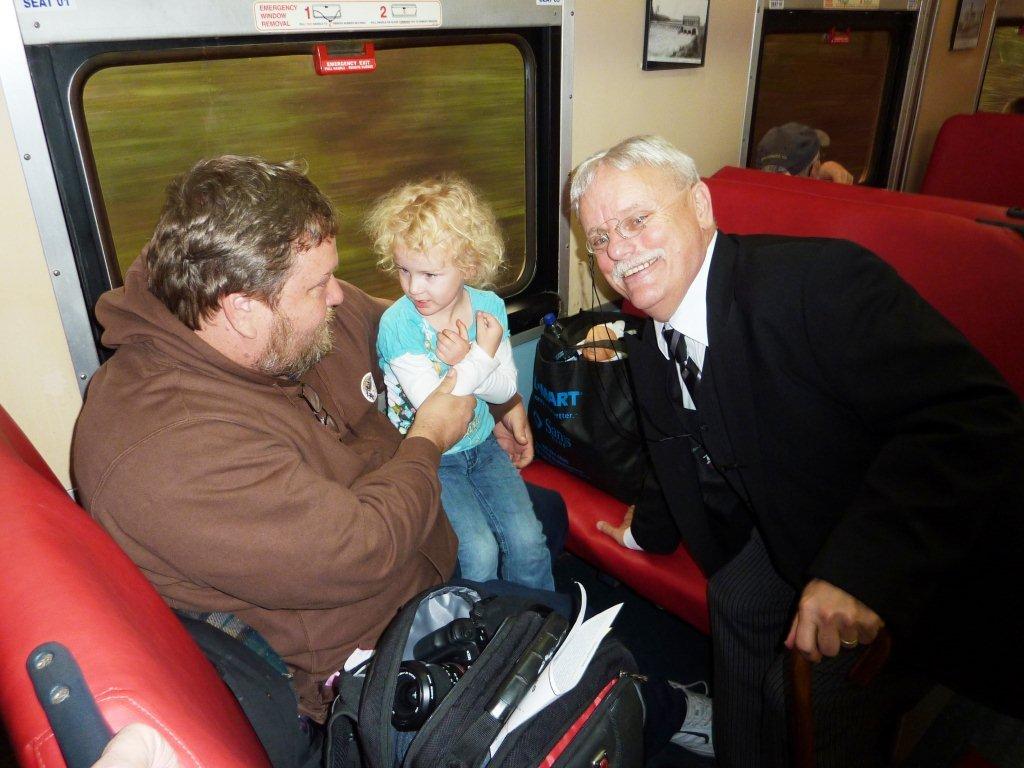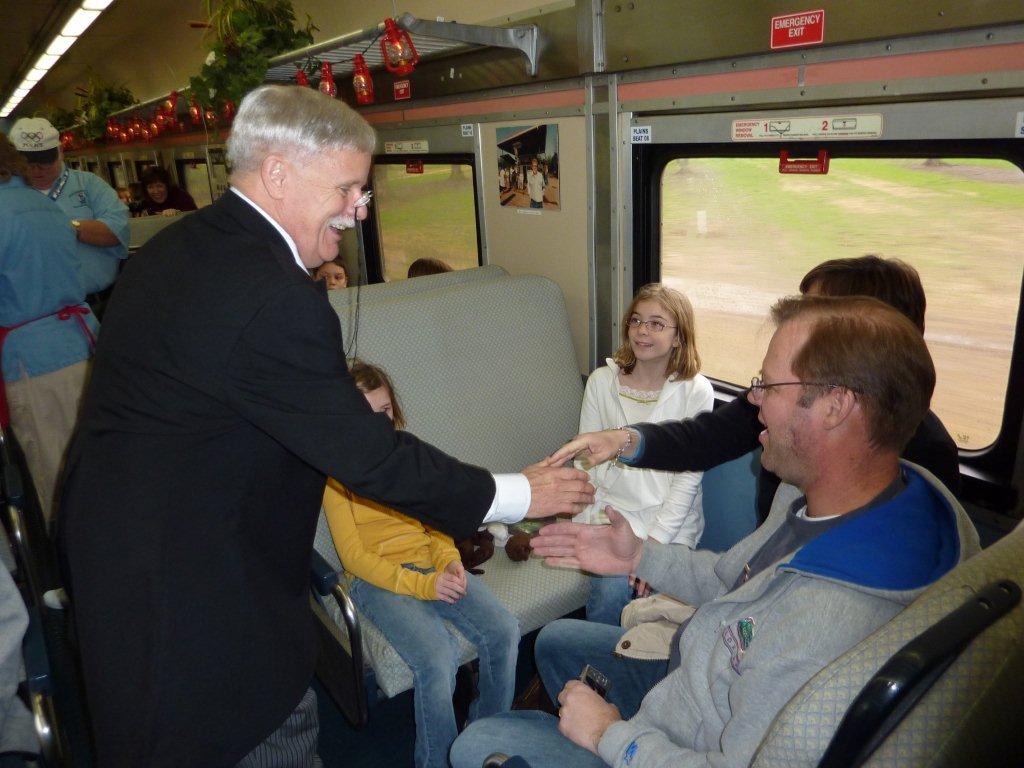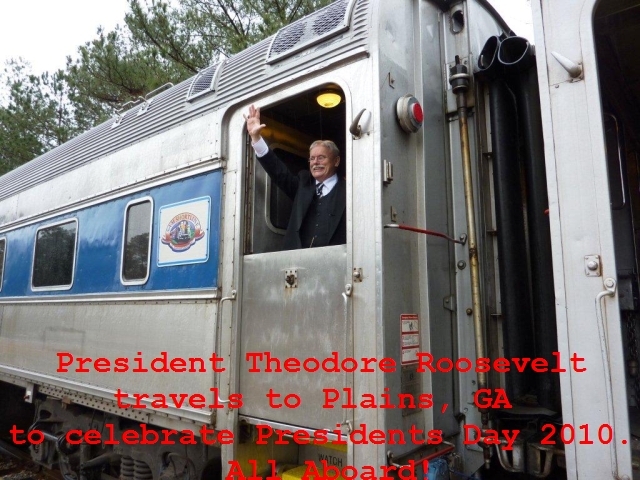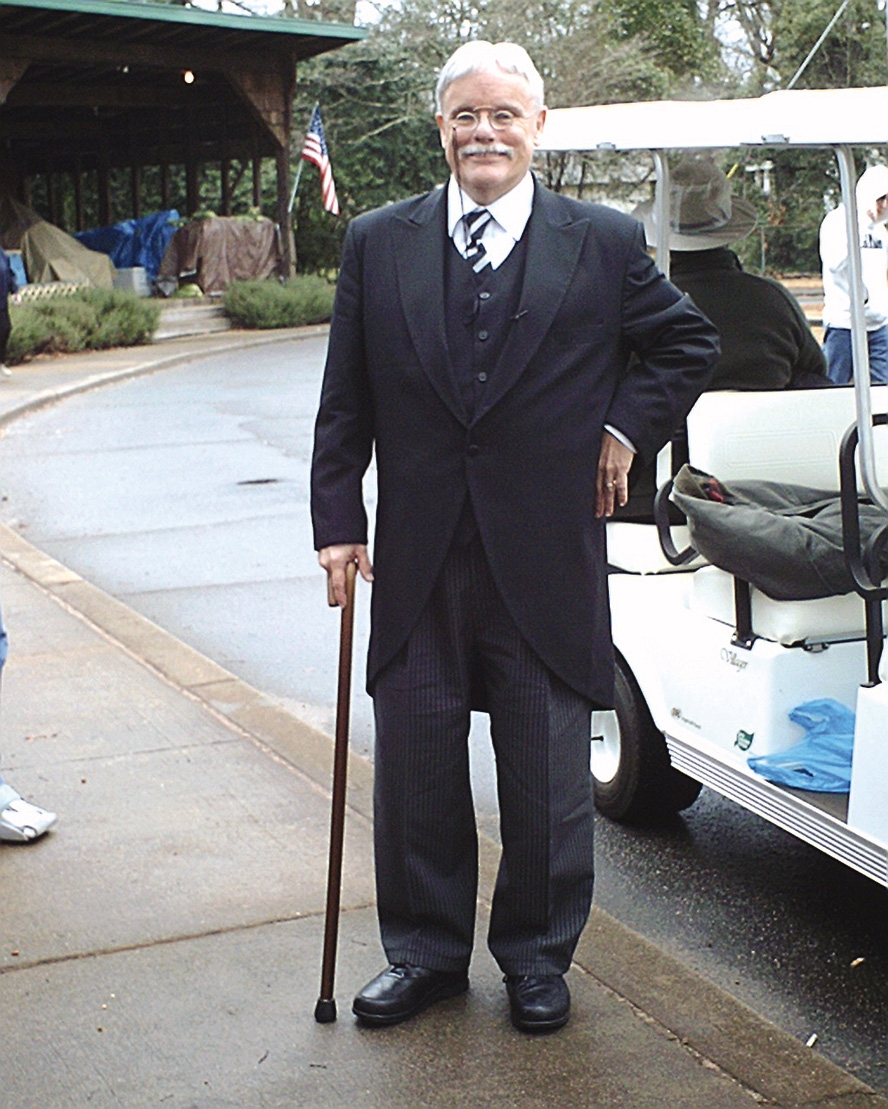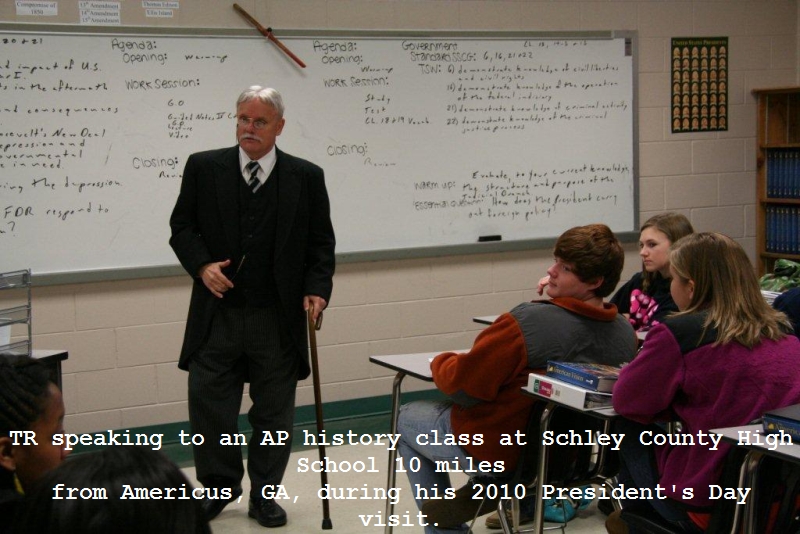February 20, 2010,A Presidential Privilege There's no chance, in this lifetime anyway, that retired school teacher Bob Hodder can meet the man he portrays for the sake of animating history. His doppelganger, President Theodore Roosevelt, is dead. But Hodder, of Euclid, experienced the next best thing last week while portraying Roosevelt during Presidents Day festivities at the Jimmy Carter National Historic Site in Plains, Ga. It was there that he met, and shook the hand, of the genuine President Jimmy Carter or, as he's know there, "Mr. Jimmy.""I've done this for a while and this is, without doubt, the most fun I have ever had and the most prestigious job I have ever had," said the 65-year-old Hodder, who taught English, history and government for 35 years at Richmond Heights High School. Hodder sat in Carter's pew at church and shook the president's hand. While Carter and Roosevelt both were concerned with conservation, Hodder said there are many differences, including, "Teddy's more of a talker. Mr. Jimmy is very quiet." This "Teddy" wasn't much of a talker upon meeting the president and first lady Rosalynn Carter. "I have to admit," said Hodder, "I was nervous." |
'President Roosevelt' visits Plains
PLAINS — President Theodore “Teddy” Roosevelt campaigned his way from Cordele to Plains on the SAM Shortline Railroad Monday in observance of Presidents’ Day as if it was 1912, then made a presentation in the auditorium of Plains High School about his life, campaign and presidency.
The 26th president was portrayed by Bob Hodder, a 35-year-old teacher who now portrays his favorite president full time. The National Park Service requested his services for Presidents’ Day because Roosevelt was the first president to win a Nobel Peace Prize for delegating a treaty between Japan and Russia, thereby ending the war between the countries. Roosevelt is important to Plains because President Jimmy Carter lives in the town, and was the second president to win the prize for, among numerous other missions, helping to bring peace between Israel and Egypt.
Hodder, as Roosevelt, described Roosevelt’s childhood, political beginnings, presidency and his run for a third term.
Roosevelt was a sickly child, with asthma, so he didn’t get as much schooling as his peers. For treatment in the mid-to-late 1800s, doctors had Roosevelt drink scalding-hot coffee and smoke, and inhale cigars, which only worsened his illness.
But, it turned out OK; Roosevelt was accepted into Harvard, where Hodder said Roosevelt didn’t take too much out of except for his first wife, Alice Lee Roosevelt, but from historical accounts, Roosevelt excelled in sports and studies, as well.
After that, Hodder said Roosevelt studied law at Columbia University, but dropped out, and almost immediately entered politics because he wanted to straighten out the state’s “corrupt” politics, Hodder said. He ran for the mayor of New York City, but took third place out of three candidates running.
But, he won an election for New York State’s governor in 1899, and then was appointed to the vice presidency in 1901, under President William McKinley. When McKinley was assassinated, Roosevelt took office only a few months after McKinley had taken office. Roosevelt won a second term as president and then took a hiatus from politics to travel. But when Roosevelt heard that his best friend, William Howard Taft, was running for a second term in office, he formed the Bull Moose Party because Taft hadn’t kept any of the promises he had made to his constituents. As a former Republican, Hodder said some people felt as though Roosevelt ripped the Republican Party apart, thereby bringing in a win for Taft’s and Roosevelt’s opponent, Democrat Woodrow Wilson.
Hodder said the campaign tore a once-great friendship apart, but at Roosevelt’s funeral, Hodder said Taft reportedly wept.
Before he was appointed vice president, though, his first daughter Alice was born Feb. 12, 1884, and his wife Alice died two days later on Valentine’s Day from kidney disease. Roosevelt reportedly retreated to North Dakota, and then returned to New York.
“(Roosevelt) was a pretty good escapist,” Hodder said.
He married a childhood friend, Edith, and the two had five more children, to which he was close, but Hodder said Roosevelt always regretted not being closer to Alice.
Roosevelt’s children with Edith were well-behaved, according to Hodder, but Alice wasn’t; she reportedly slid down the White House’s banister into the arms of visiting dignitaries. Hodder said when Roosevelt caught Alice smoking in the White House, Roosevelt banned Alice from smoking “under my roof.” So, Alice marched to the roof of the White House and smoked.
Hodder said Roosevelt wasn’t so bad, though; he reportedly had pillow fights with his children and roller skated in the White House halls. He also brought a pony to the third floor of the White House to cheer up one of his sick sons.
Roosevelt also survived an assassination attempt because his spare pair of glasses and a speech he was keeping in a breast pocket deflected the bullet enough so that it didn’t go far enough into him to kill him. He was set to deliver a speech that day just moments later, and decided, because he wasn’t coughing up blood, to continue with his one-hour speech. He then went to the hospital.
During Roosevelt’s reign as president, he’s credited with building the Panama Canal, designating 232 million United States acres as national forests, national parks and national wild life refuges.
Roosevelt was an avid naturalist and hunter. When Roosevelt came across a sick, small bear, though, he refused to kill him and took the bear to get help.
When a toy maker heard this story, the “teddy bear” was coined for Roosevelt. But, Roosevelt only allowed Edith to call him “Teddy.”
If Roosevelt was alive today, he would be 151.
